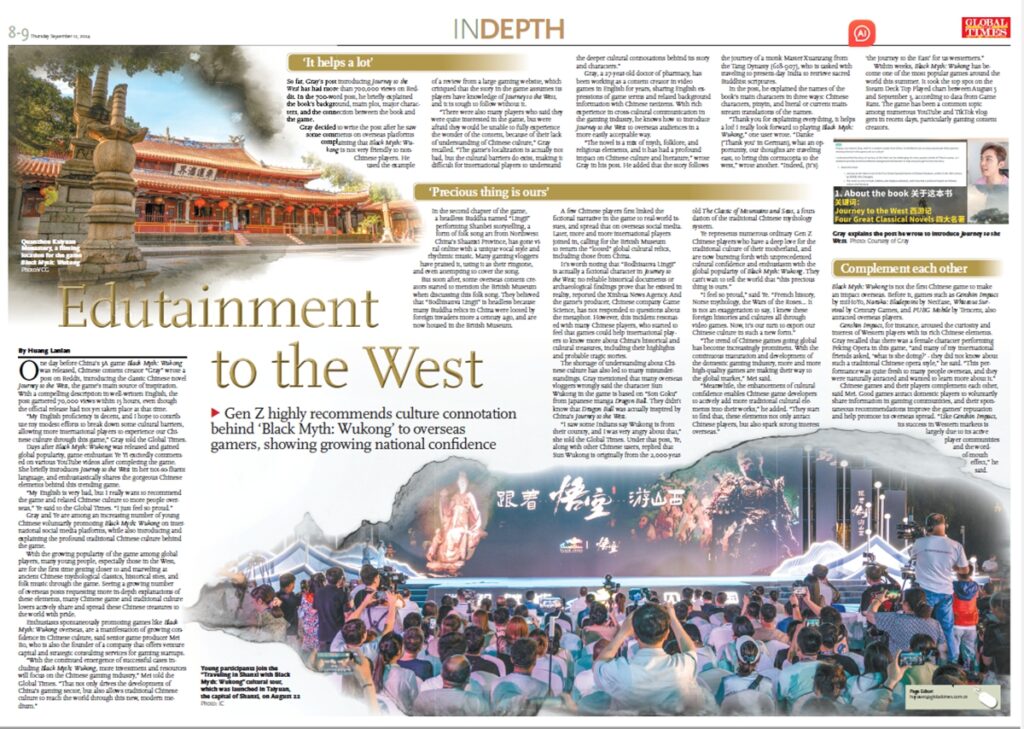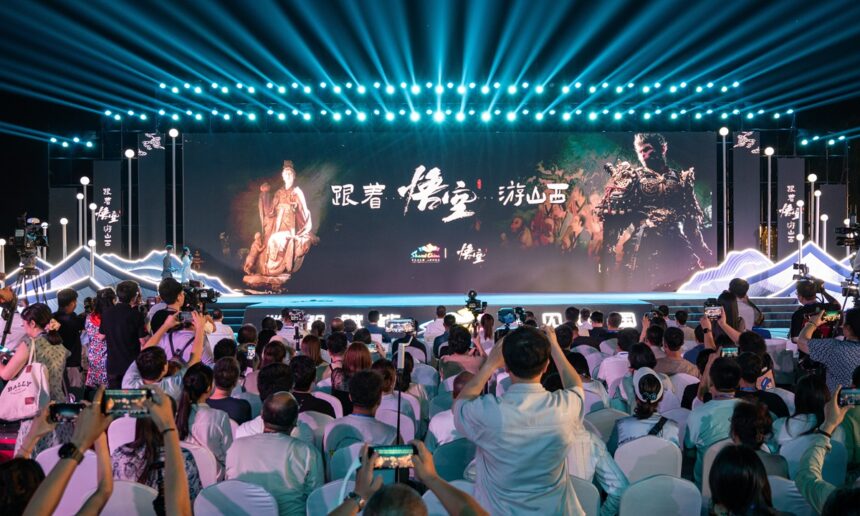One day before the release of China’s highly anticipated 3A game Black Myth: Wukong, a Chinese content creator named “Gray” posted on Reddit, introducing the game’s inspiration, the classic Chinese novel Journey to the West. In just 15 hours, the post garnered 70,000 views, demonstrating the strong international interest in the game and its cultural background.
Gray shared his motivations with Global Times, stating, “My English proficiency is decent, and I hope to contribute to breaking cultural barriers, allowing more international players to experience our Chinese culture through this game.”
In the days following the release, Black Myth: Wukong gained immense global popularity. Game enthusiast Ye Yi, despite her limited English, excitedly shared details about the Chinese cultural elements behind the game on YouTube and other platforms. “My English is very bad, but I really want to recommend the game and related Chinese culture to more people overseas,” she told Global Times. “I just feel so proud.”
Gray and Ye are part of a growing wave of young Chinese gamers who are using international social media platforms to promote the game and explain the rich traditional Chinese culture behind it. Through the game’s popularity, many Western players are discovering ancient Chinese myths, historical sites, and folk music for the first time.
Bridging Cultural Gaps
Gray’s Reddit post, which introduced Journey to the West, quickly amassed over 700,000 views. In his 700-word explanation, he provided background information on the novel, its main characters, and its connection to the game, helping non-Chinese players better understand the cultural references. Gray noticed that some overseas gamers struggled to follow the story, as they were unfamiliar with Journey to the West. His post aimed to fill that gap.
Players from around the world appreciated his efforts, with one user commenting, “Thank you for explaining everything, it helps a lot! I really look forward to playing Black Myth: Wukong.”

As the game continued to gain traction, discussions about its cultural themes grew. One particular scene in the game featuring a headless Buddha named “Lingji” sparked widespread interest, leading international players to explore the deeper meanings behind the character. Some players speculated that the headless Buddha symbolized cultural relics looted from China and housed in foreign museums, like the British Museum.
Although “Lingji” is a fictional character, the discussion highlighted the power of video games as a medium for introducing complex cultural themes to international audiences.
Rising Cultural Confidence
With the success of Black Myth: Wukong, many Chinese players, particularly Gen Z, are experiencing a new sense of cultural pride. Ye Yi expressed her excitement, saying, “I knew foreign histories and cultures through video games. Now, it’s our turn to export our Chinese culture in such a new form.”
This newfound confidence is evident as Chinese gamers actively share their culture on global platforms. As senior game producer Mei Bo explained, “With the continued emergence of successful cases like Black Myth: Wukong, more investment and resources will focus on the Chinese gaming industry. This not only drives the development of China’s gaming sector but also enables traditional Chinese culture to reach the world through this modern medium.”
Global Impact of Chinese Games
Black Myth: Wukong is not the first Chinese game to make a splash internationally. Games like Genshin Impact, Naraka: Bladepoint, and PUBG Mobile have also attracted a global player base. Genshin Impact, in particular, piqued Western players’ curiosity with its Chinese cultural elements, such as a character performing Peking Opera.
Chinese gamers like Gray help bridge the gap by explaining these cultural references. As Mei noted, the success of Chinese games in Western markets is often due to active player communities and word-of-mouth recommendations. As Chinese games continue to grow in popularity, so too does the interest in China’s rich cultural heritage.

